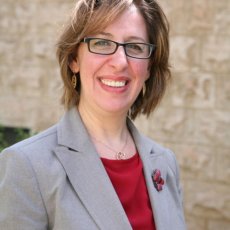
Education and Citizenship in Lebanon
Hala Bitar is an external PhD student. Her research focuses on education and citizenship in Lebanon.
Over the past five decades, studies on citizenship have undergone significant advancements in terms of content, approaches, and implications. One practical implication that has emerged is that the development of citizenship is most effectively achieved through school education.
Now, turning our attention to the context of Lebanon, where confessionalism holds dominance and political corruption is prevalent, it is disheartening to note that the updated school curriculum implemented after the civil war in 1997, which aimed to promote citizenship education as a means for peace and social cohesion, has largely remained limited to theoretical documents and uninspiring teachings. Research indicates that citizenship education in Lebanese schools lacks active engagement and effectiveness. This prompts us to question the role of Christian schools in Lebanon, which educate approximately 60% of the student population. These schools are well known for their well-developed programs and curricula, which produce some of the highest-quality graduates in the country. How can they contribute to graduating responsible citizens for the betterment of Lebanon's future?
This research endeavors to explore the practices, experiences, theological reflections, and implications of citizenship education primarily in Catholic, Maronite, and Protestant schools in Lebanon. The study will specifically focus on gathering perspectives from 16-18- year-old students, policymakers, and religious educators within the selected schools. Furthermore, this research will shed light on the role of religious education in fostering dialogue and prophetic voices. It will extensively examine the theological reflections on citizenship education from various stakeholders within the participating schools. By doing so, this research aims to consolidate efforts in teaching dialogue, nurturing prophetic voices, and graduating citizens who can serve as catalysts for positive change in Lebanon's future. The goal is to equip Christian schools involved in this study with theological and practical frameworks to develop comprehensive content and practices for citizenship education within their institutions. By doing so, they can significantly contribute to shaping responsible and engaged citizens who are capable of effecting positive transformations in Lebanon.
Supervisor: dr. Ronelle Sonnenberg and dr. Rima Nasrallah

